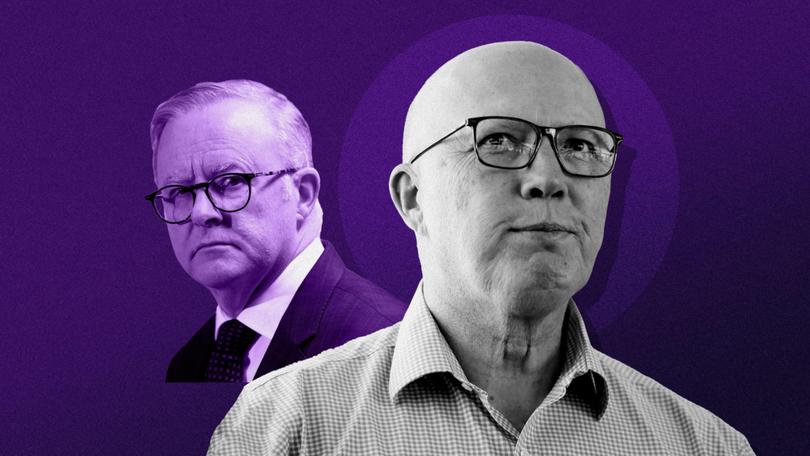MARK RILEY: If he can overcome his Victoria problems, things look good for Peter Dutton to clinch power
MARK RILEY: Victoria has always been a problem for Peter Dutton, as it has for all Liberal leaders, but using fear and greed could swing the state’s favour in his direction by the May election.

The day before the Dunkley by-election, Peter Dutton held a doorstop interview at a local sports ground at the far edge of the southern Melbourne electorate.
It followed a campaign event inside the clubhouse, attended exclusively by party volunteers wearing royal blue Liberal t-shirts.
It was all done before 8am and there wasn’t a single actual voter in sight.
Sign up to The Nightly's newsletters.
Get the first look at the digital newspaper, curated daily stories and breaking headlines delivered to your inbox.
By continuing you agree to our Terms and Privacy Policy.And it was one of three elements of that campaign that gave Labor strategists renewed hope for their chances at next year’s Federal election.
Their Liberal counterparts had obviously accepted that Dutton wasn’t popular and wanted to minimise his visibility in the campaign as much as possible to keep the contest local.
Labor, on the other hand, wanted voters to see as much of Dutton as they could, plastering posters of him with a slightly demonic visage from one end of the electorate to the other.
The second element that gave Labor strategists hope was the way in which Dunkley voters had so quickly forgiven the Government for its stage three tax cut backflip just weeks earlier.
As much as Anthony Albanese had tried to convince the electorate that he was a different kind of leader whose “word is my bond”, voters were hardly shocked to discover that he was just another politician who was prepared to break his word to retain power.
They shrugged their shoulders, took the money and voted Labor.
A Cabinet minister told me at the time: “There was a red hot chance that we could have lost Dunkley if not for the tax cuts. We would have been rolled on the trust front.”
The final element was the failure of right-wing group Advance to have any real impact on the outcome, despite running a broadscale scare campaign on the supposed threat posed to local voters by the “rapists, paedophiles and murderers” released by the High Court’s NZYQ decision against indefinite detention.
Advance’s campaign played well to the conservative base but wasn’t as persuasive as the tax cuts in convincing swinging voters in the middle ground.
To put none too fine a point on it, presented with a choice between fear and greed, Dunkley voters were happier to take the money.
But in the almost six months since, the political landscape has changed significantly to turn two of those three factors back in the Coalition’s favour.
Anthony Albanese remains more popular than Peter Dutton, but the gap is narrowing. Albanese’s rating as preferred prime minister has fallen in Newspoll this year from a high of 52 to 46, while Dutton’s has risen from a low of 33 to 39.
It is clear Victoria will remain a real challenge for Dutton, as it has been for all Liberal leaders from other States.
John Howard used to refer to it, only half-jokingly, as “the Massachusetts of the south”.
But Dutton might not be so reluctant to show his face there by the time the election comes around in May.
And the Coalition might by then have both fear and greed in its favour.
Cost of living remains the dominant issue among voters, but national and personal security concerns are climbing as Dutton keeps the debate running over the tourist visas granted to Palestinians escaping Gaza and with ASIO’s decision to raise the national threat level and fears about youth and gang crime.
And this week shadow treasurer Angus Taylor effectively confirmed that the Coalition will promise further changes to the stage three tax cuts at the next election funded through the abolition of several signature Labor policies.
It will be a tough sell. Voters will need to accept that there are legitimate reasons to unwind major investments and incentives in renewable energy, manufacturing and housing.
But this time it will be the Coalition hoping they simply shrug their shoulders, take the money and vote for them.

